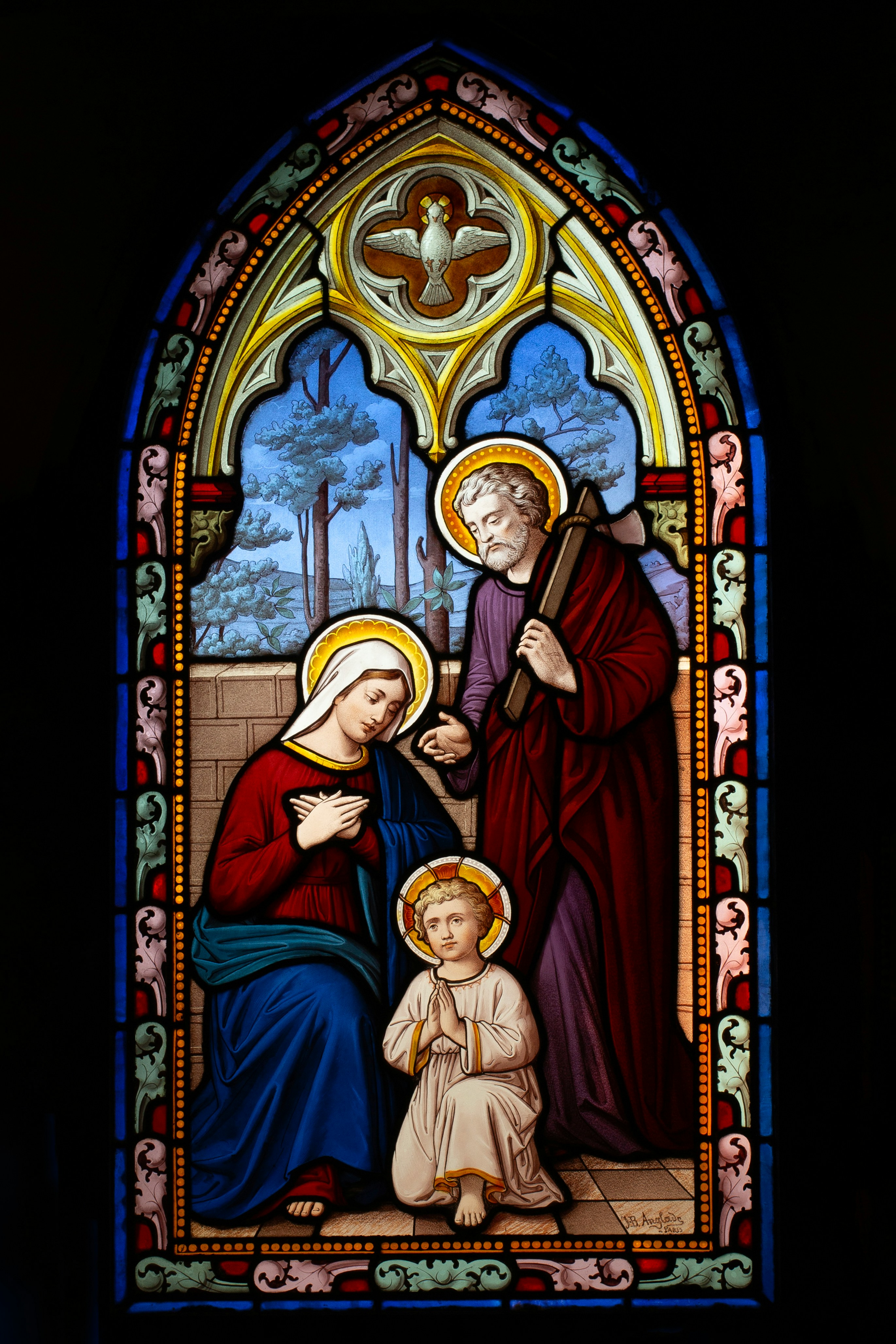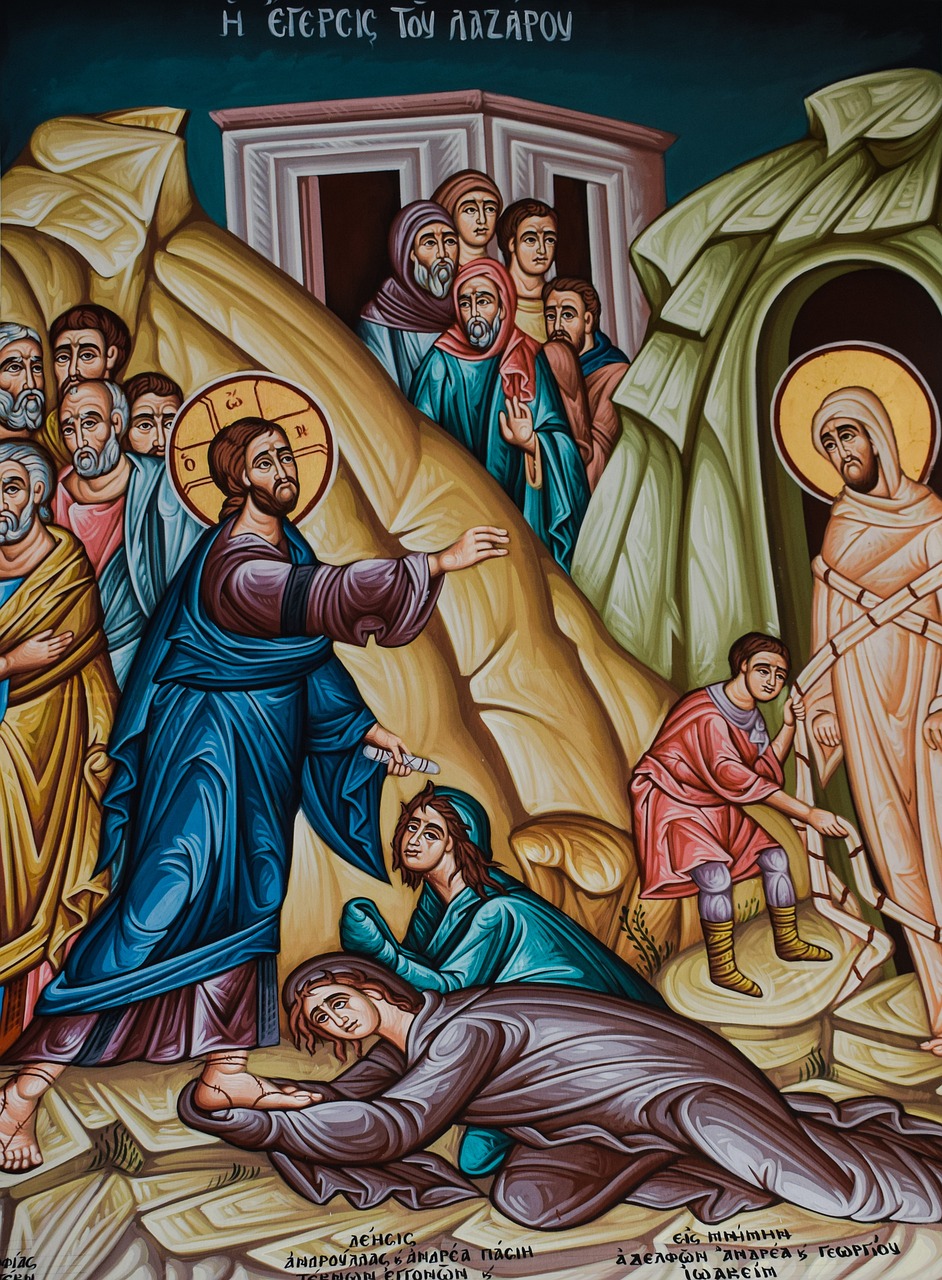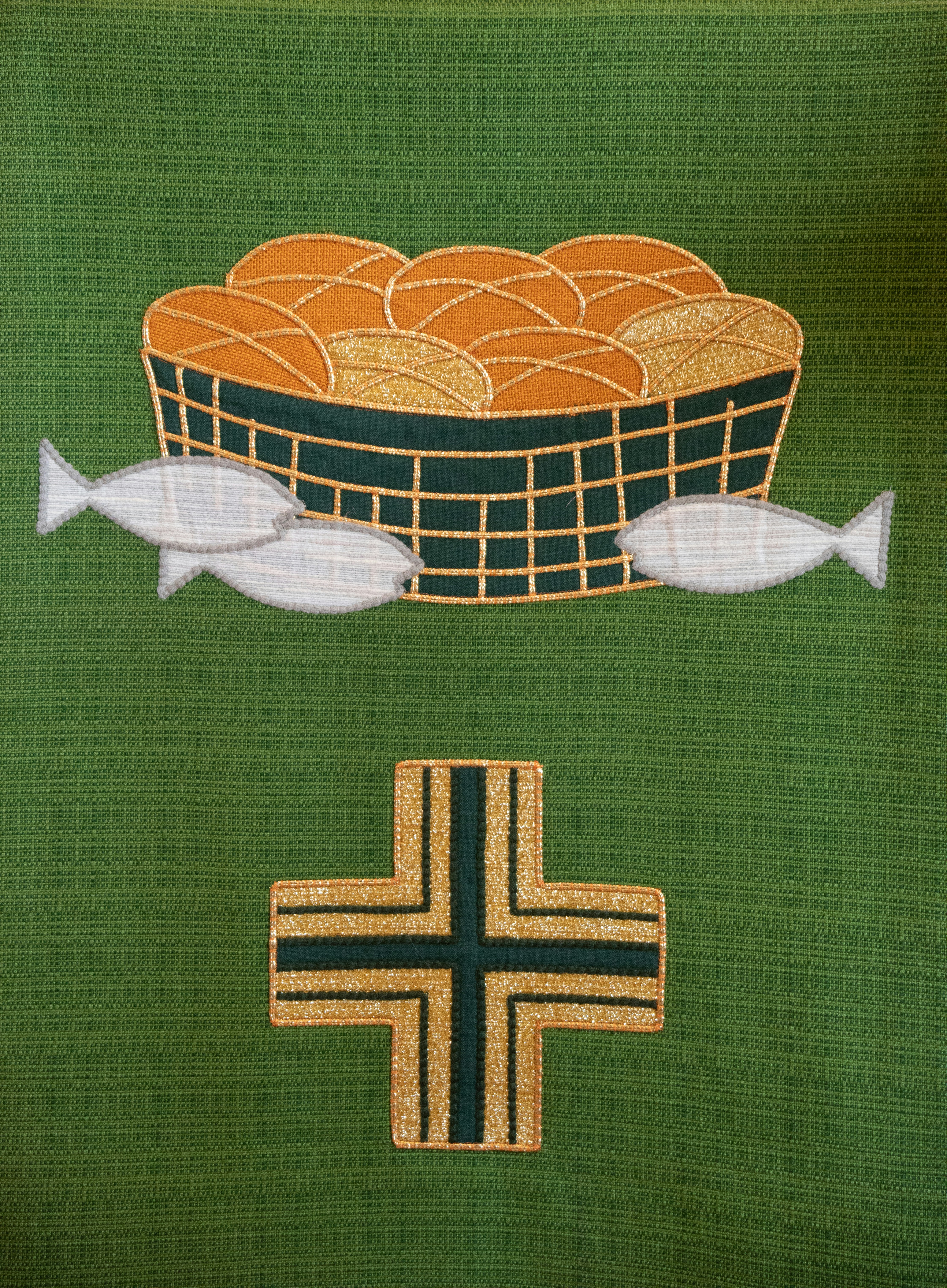When reading Scripture, I often place myself as a character in the verse I am reading. In this case, I put myself in Peter’s place, but to my surprise, this question stumped me. “Who do you say that I am?” I sat there staring at the words for a long time, unable to answer them accurately. Am I confident enough, like Peter, to be able to say, “You are the Christ”? I’ve come so far in my spiritual journey in responding to this question, yet it always makes me pause when presented with it. Who do I say that Jesus is?
First, I must be willing to allow Christ to define Himself and not project who I want Him to be. I have to be open to understanding Jesus’ true identity through the Holy Spirit, as Peter did, and not seek to set earthly parameters. My spiritual director has teased me on more than one occasion saying that I am willing to love Jesus entirely and surrender my life to him, but first I want “a prenuptial agreement.”
That is partly my struggle with anxiety and partly due to the fact that identifying who Christ is to me personally was foreign for so much of my life. Christ was on the cross, and I appreciated his salvific work, but he was not in my heart. I could see, yet did I believe? Or was I like the father of the child in Mark’s Gospel (9:24) who “cried out and said with tears, ‘Lord, I believe; help my unbelief!’” In addition, Jesus did not have to worry about me telling people who He was; not only was I not really clear myself back then, but I was also of the ‘faith is private’ mindset.
What changed all that uncertainty and closed-lippedness to get me where I am today—blogging, speaking, radio broadcasting, yelling from the rooftops that Jesus is the Christ? Three simple things: prayer, Scripture, and embracing a sacramental life. Scripture came first; the other two naturally followed as I got to know Christ more. The more I read and learned about the greatness of God and His Only Son, the more I wanted to be in communication with him and therefore, my prayer life grew. As my time in prayer with Christ grew, I wanted to be in even closer communion. I could only find that in the sacraments, particularly the Eucharist – received in the liturgy and adored in the Blessed Sacrament – and Reconciliation.
Like St. Peter, without the Holy Spirit’s intervention, I could never know that Jesus is Christ, “the Messiah, the Son of the living God.” I needed to spend time with Jesus and get to know him, and only then could I make the statement with Peter’s conviction. The more I know, the more I love, and the more I can not only say along with Peter, “You are the Messiah,” I can also proclaim “You are my Messiah, my Savior!”
Cuando leo las Escrituras, a menudo me ubico como un personaje en el versículo que estoy leyendo. En este caso, me puse en el lugar de Pedro, pero me sorprendió que esta pregunta me dejara perpleja. “¿Quién dicen que soy?” Me quedé sentada mirando las palabras durante mucho tiempo, incapaz de responderlas con precisión. ¿Tengo suficiente confianza, como Pedro, para poder decir: “Tú eres el Mesías”? He llegado muy lejos en mi camino espiritual respondiendo a esta pregunta, pero siempre me hace detenerme cuando se me presenta. ¿Quién digo que es Jesús?
Primero, debo estar dispuesta a permitir que Cristo se defina a sí mismo y no proyectar quién quiero que sea. Tengo que estar abierta a comprender la verdadera identidad de Jesús a través del Espíritu Santo, como lo hizo Pedro, y no buscar establecer parámetros terrenales. Mi director espiritual me ha bromeado en más de una ocasión diciendo que estoy dispuesta a amar a Jesús por completo y entregarle mi vida, pero primero quiero “un acuerdo prenupcial”.
Esto se debe parcialmente a mi batalla contra la ansiedad y parcialmente al hecho de que identificar quién es Cristo para mí personalmente fue extraño durante gran parte de mi vida. Cristo estaba en la cruz y aprecié su obra salvífica, pero él no estaba en mi corazón. Pude ver, pero ¿creía? ¿O era como el padre del niño en el Evangelio de Marcos (9,24) que “clamó y dijo con lágrimas: ‘Señor, creo; ayuda mi incredulidad!'” Además, Jesús no tenía que preocuparse de que yo le dijera a otras personas quién era Él; No me quedó muy claro en ese entonces y también tenía la mentalidad de que “la fe es privada”.
¿Qué cambió toda esa incertidumbre y ese silencio para llegar a donde estoy hoy: bloguear, hablar, transmitir por radio, gritar a los cuatro vientos que Jesús es el Cristo? Tres cosas sencillas: la oración, las Escrituras y vivir una vida sacramental. Las Escrituras fueron lo primero; los otros dos naturalmente siguieron a medida que conocía más a Cristo. Mientras más leía y aprendía sobre la grandeza de Dios y de Su Único Hijo, más quería estar en comunicación con él y por lo tanto, mi vida de oración crecía. A medida que crecía mi tiempo en oración con Cristo, quería estar en una comunión aún más amplia. Eso sólo lo pude encontrar en los sacramentos, particularmente en la Eucaristía – recibida en la liturgia y adorada en el Santísimo Sacramento – y en la Reconciliación.
Como San Pedro, sin la intervención del Espíritu Santo, nunca podría saber que Jesús es el Cristo, “el Mesías, el Hijo de Dios vivo”. Necesitaba pasar tiempo con Jesús y conocerlo, y sólo entonces podría hacer la declaración con la convicción de Pedro. Cuanto más sé, más amo y más puedo no sólo decir junto con Pedro: “Tú eres el Mesías”, sino que también puedo proclamar: “¡Tú eres mi Mesías, mi Salvador!”
 Allison Gingras ( www.ReconciledToYou.com ) — Shares her love of the Catholic Faith with stories, laughter, and honesty as experienced in the ordinary of life! Her writing includes Encountering Signs of Faith (Ave Maria Press) and the Stay Connected Journals for Women (OSV). Allison is a Catholic Digital Media Specialist for Family Rosary, Catholic Mom, and the Fall River Diocese. She hosts A Seeking Heart podcast and is co-host of the Catholic Momcast podcast.
Allison Gingras ( www.ReconciledToYou.com ) — Shares her love of the Catholic Faith with stories, laughter, and honesty as experienced in the ordinary of life! Her writing includes Encountering Signs of Faith (Ave Maria Press) and the Stay Connected Journals for Women (OSV). Allison is a Catholic Digital Media Specialist for Family Rosary, Catholic Mom, and the Fall River Diocese. She hosts A Seeking Heart podcast and is co-host of the Catholic Momcast podcast.Feature Image Credit: Mrexentric, pixabay.com/photos/switzerland-sunrise-mountain-clouds-4290226/
The views and opinions expressed in the Inspiration Daily blog are solely those of the original authors and contributors. These views and opinions do not necessarily represent those of Diocesan, the Diocesan staff, or other contributors to this blog.


 Kate Taliaferro is an Air Force wife and mother. She is blessed to be able to homeschool, bake bread and fold endless piles of laundry. When not planning a school day, writing a blog post or cooking pasta, Kate can be found curled up with a book or working with some kind of fiber craft. Kate blogs at
Kate Taliaferro is an Air Force wife and mother. She is blessed to be able to homeschool, bake bread and fold endless piles of laundry. When not planning a school day, writing a blog post or cooking pasta, Kate can be found curled up with a book or working with some kind of fiber craft. Kate blogs at 


 Kathryn Mulderink, MA, is married to Robert, Station Manager for Holy Family Radio. Together they have seven children (including Father Rob), and eight grandchildren. She is President of the local community of Secular Discalced Carmelites and has published five books and many articles. Over the last 30 years, she has worked as a teacher, headmistress, catechist, Pastoral Associate, and DRE, and as a writer and voice talent for Catholic Radio. Currently, she serves the Church by writing and speaking, and by collaborating with various parishes and to lead others to encounter Christ and engage their faith. Her website is
Kathryn Mulderink, MA, is married to Robert, Station Manager for Holy Family Radio. Together they have seven children (including Father Rob), and eight grandchildren. She is President of the local community of Secular Discalced Carmelites and has published five books and many articles. Over the last 30 years, she has worked as a teacher, headmistress, catechist, Pastoral Associate, and DRE, and as a writer and voice talent for Catholic Radio. Currently, she serves the Church by writing and speaking, and by collaborating with various parishes and to lead others to encounter Christ and engage their faith. Her website is 
 Tami Urcia grew up in Western Michigan, a middle child in a large Catholic family. She spent early young adulthood as a missionary in Mexico, studying theology and philosophy, then worked and traveled extensively before finishing her Bachelor’s Degree in Western Kentucky. She loves tackling projects, finding fun ways to keep her little ones occupied, quiet conversation with the hubby and finding unique ways to love. She works full time at Diocesan, is a guest blogger on
Tami Urcia grew up in Western Michigan, a middle child in a large Catholic family. She spent early young adulthood as a missionary in Mexico, studying theology and philosophy, then worked and traveled extensively before finishing her Bachelor’s Degree in Western Kentucky. She loves tackling projects, finding fun ways to keep her little ones occupied, quiet conversation with the hubby and finding unique ways to love. She works full time at Diocesan, is a guest blogger on 
 David Dashiell is a freelance author and editor in Nashville, Tennessee. He has a master’s degree in theology from Franciscan University, and is the editor of the anthology
David Dashiell is a freelance author and editor in Nashville, Tennessee. He has a master’s degree in theology from Franciscan University, and is the editor of the anthology 


 Deacon Dan Schneider is a retired general manager of industrial distributors. He and his wife Vicki have been married for over 50 years. They are the parents of eight children and thirty-one grandchildren. He has a degree in Family Life Education from Spring Arbor University. He was ordained a Permanent Deacon in 2002. He has a passion for working with engaged and married couples and his main ministry has been preparing couples for marriage.
Deacon Dan Schneider is a retired general manager of industrial distributors. He and his wife Vicki have been married for over 50 years. They are the parents of eight children and thirty-one grandchildren. He has a degree in Family Life Education from Spring Arbor University. He was ordained a Permanent Deacon in 2002. He has a passion for working with engaged and married couples and his main ministry has been preparing couples for marriage.



 Elizabeth Tomlin is the author of Joyful Momentum: Building and Sustaining Vibrant Women’s Groups and contributing author to the Ave Prayer Book for Catholic Mothers. She is General Counsel for the Archdiocese for the Military Services, USA. Elizabeth is an Army wife and mother of three and currently lives in the DC area. She blogs at
Elizabeth Tomlin is the author of Joyful Momentum: Building and Sustaining Vibrant Women’s Groups and contributing author to the Ave Prayer Book for Catholic Mothers. She is General Counsel for the Archdiocese for the Military Services, USA. Elizabeth is an Army wife and mother of three and currently lives in the DC area. She blogs at 
 Dr. Alexis Dallara-Marsh is a board-certified neurologist who practices in Bergen County, NJ. She is a wife to her best friend, Akeem, and a mother of two little ones on Earth and two others in heaven above.
Dr. Alexis Dallara-Marsh is a board-certified neurologist who practices in Bergen County, NJ. She is a wife to her best friend, Akeem, and a mother of two little ones on Earth and two others in heaven above.